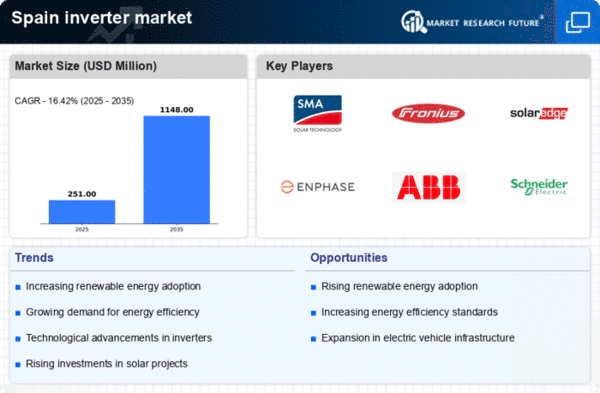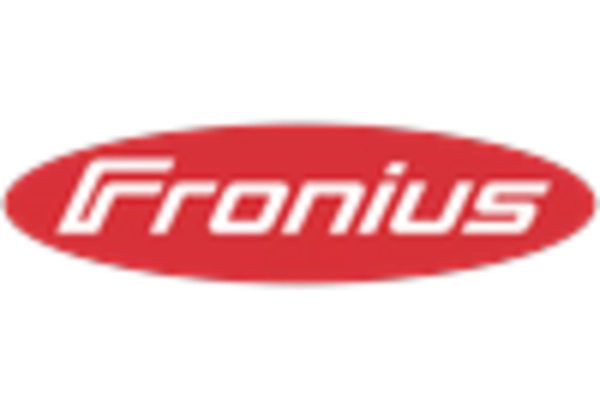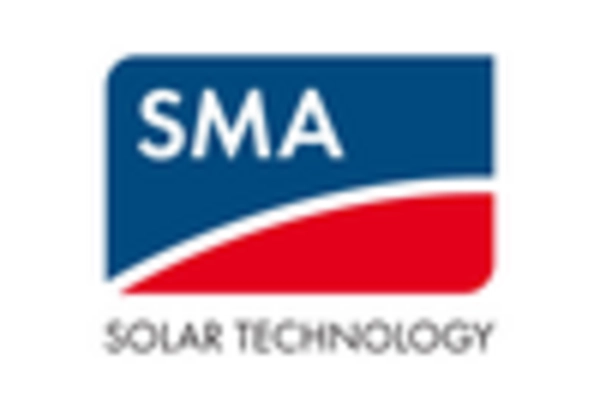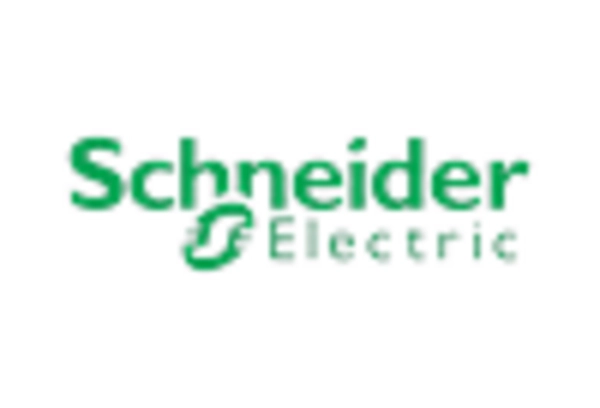Regulatory Framework Enhancements
Spain's regulatory environment is evolving to support the growth of the inverter market. Recent legislation aimed at promoting energy efficiency and reducing carbon emissions has created a favorable landscape for inverter manufacturers. The government has introduced standards that mandate the use of high-efficiency inverters in new installations, which could potentially increase market penetration. Furthermore, compliance with these regulations may lead to a surge in demand for advanced inverter technologies, as stakeholders seek to align with national energy policies and sustainability goals.
Growing Demand for Renewable Energy
The increasing emphasis on renewable energy sources in Spain is driving the inverter market. As the country aims to meet its renewable energy targets, the demand for inverters, which are essential for converting solar and wind energy into usable electricity, is expected to rise. In 2025, Spain's renewable energy capacity is projected to reach approximately 50 GW, with solar energy contributing significantly. This shift towards sustainable energy solutions is likely to enhance the inverter market, as more installations require efficient inverter systems to optimize energy conversion and usage.
Expansion of Electric Vehicle Infrastructure
The expansion of electric vehicle (EV) infrastructure in Spain is creating new opportunities for the inverter market. As the government promotes the adoption of EVs, the need for efficient charging solutions, which often incorporate advanced inverter technologies, is increasing. By 2025, the number of public charging stations is expected to exceed 10,000, necessitating the deployment of high-performance inverters to manage energy flow. This growth in EV infrastructure is likely to stimulate demand for inverters, as they play a crucial role in ensuring efficient energy conversion and distribution.
Technological Innovations in Inverter Design
Innovations in inverter technology are significantly impacting the inverter market in Spain. The development of smart inverters, which offer enhanced functionalities such as grid support and real-time monitoring, is becoming increasingly prevalent. These advanced systems not only improve energy efficiency but also facilitate better integration of renewable energy sources into the grid. As of 2025, it is estimated that smart inverters could account for over 30% of the total inverter market, reflecting a shift towards more sophisticated energy management solutions.
Increased Investment in Energy Storage Solutions
The rising interest in energy storage systems is likely to bolster the inverter market in Spain. As consumers and businesses seek to enhance energy independence and reliability, the integration of inverters with battery storage systems is becoming more common. This trend is expected to grow, with investments in energy storage projected to reach €1 billion by 2026. The synergy between inverters and storage solutions not only optimizes energy usage but also supports the stability of the grid, thereby driving demand within the inverter market.

















Leave a Comment